Takaya Mitsuka (Running Influencer) – To create a new history in track and field, the one and only “fascinating” running
2025.02.28
Sport physician
Associate Professor, Juntendo University, Faculty of Health and Sports Science
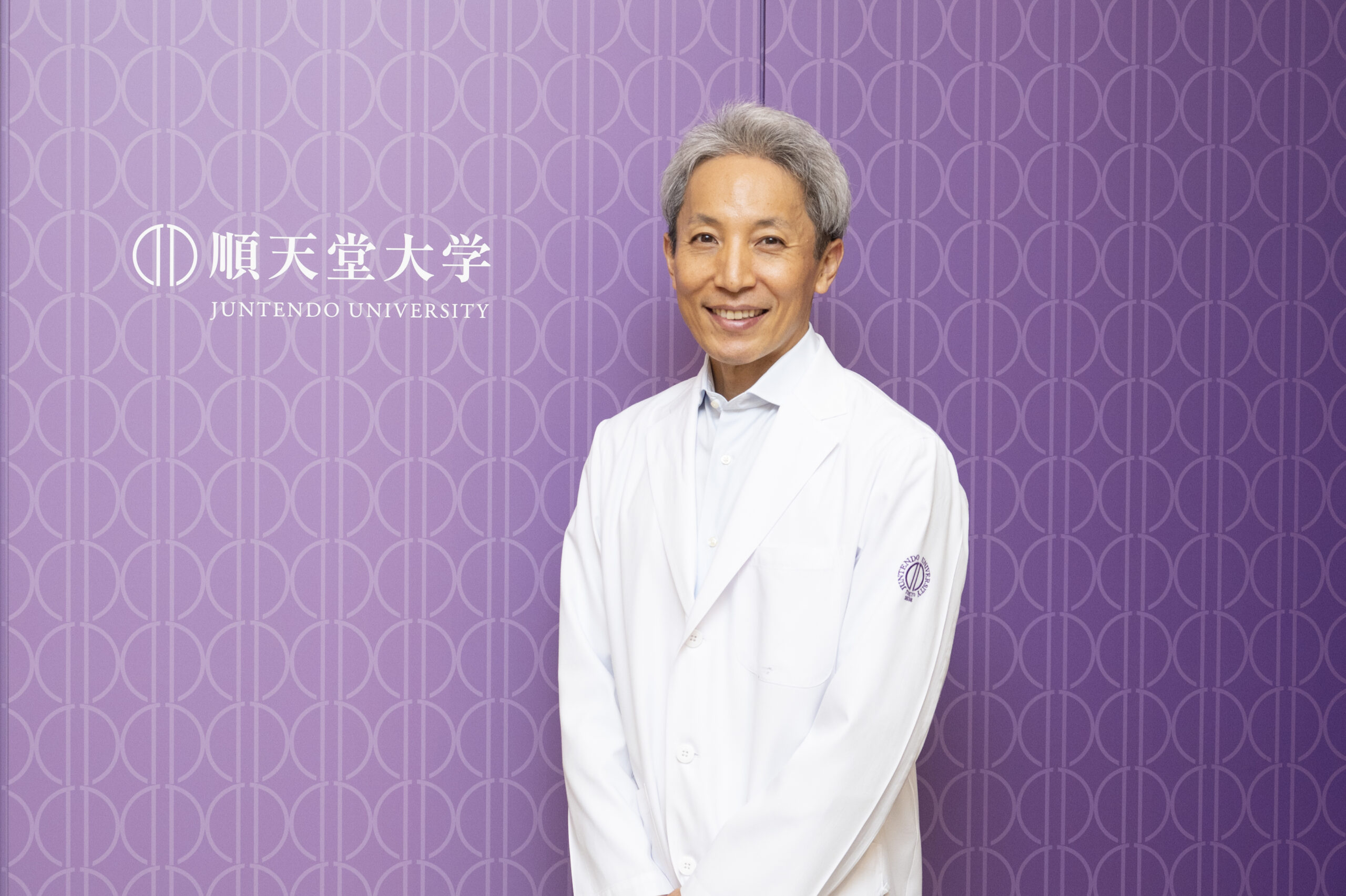
2024.01.16
A joint project between the Tokyo Metropolitan Government, Juntendo University, and the University of Electro-Communications, “Utilization of AI Sign Language Translation Tools and Borderless Sports Events for the Tokyo Deaflympics”. Shiota-san is the representative of this project and also has experience as an accompanying doctor and competition site doctor at the Deaflympics and Paralympics.
What is the reason why a doctor at a university hospital is so passionate about supporting sports and athletes with disabilities…?
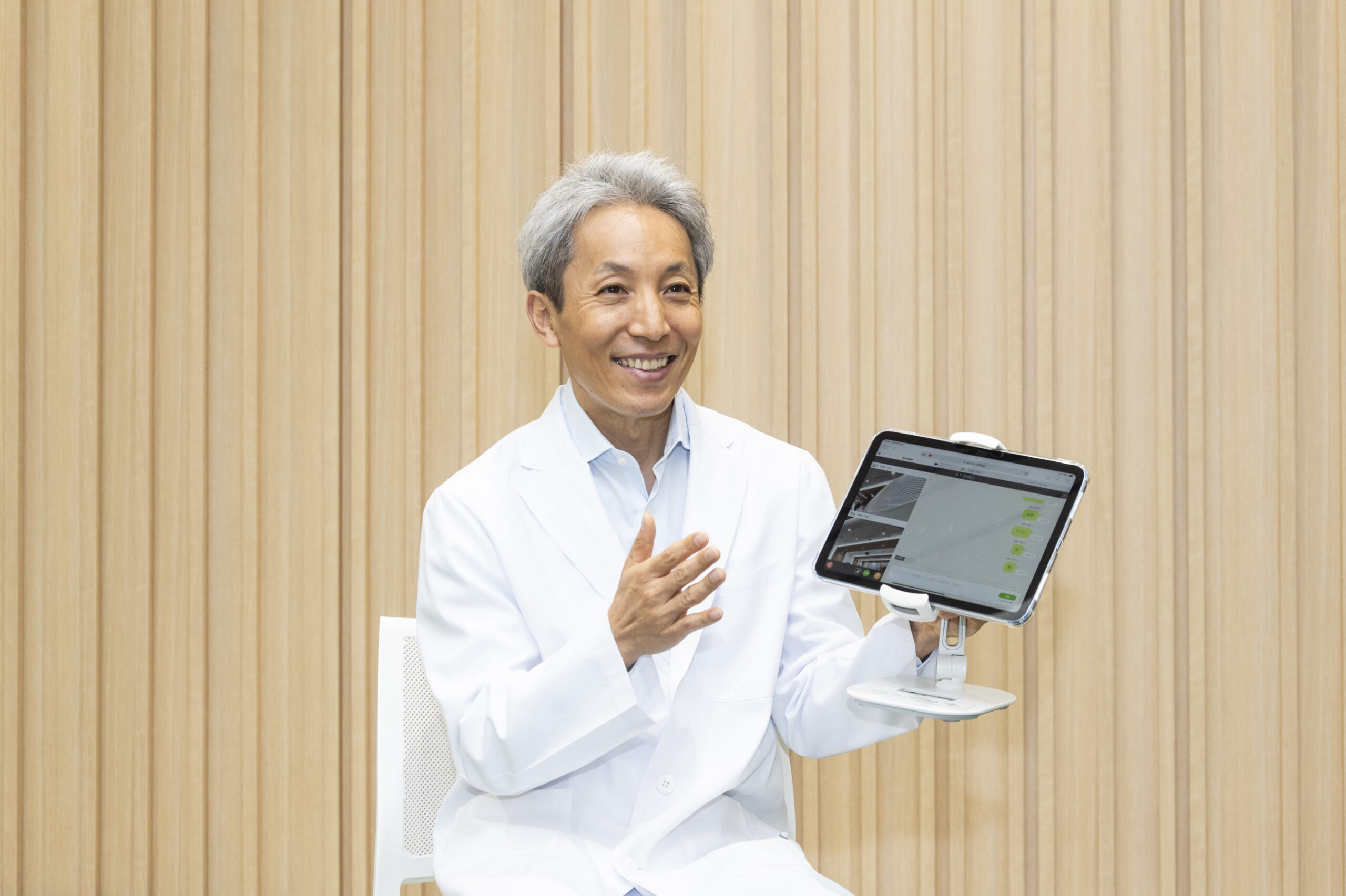
-Why did you decide to enter the world of sports medicine?
Shiota-san I have enjoyed playing and watching sports since I was a child, and after playing baseball and basketball, I started playing rugby in high school. Rugby could be played by small people, and at the time, a TV drama called “School Wars” was popular. So I did nothing but play in club activities instead of studying.
When I was in high school, I suffered a serious injury while playing rugby, which was one of the reasons. I broke my hip bone. I thought I would never be able to return to competition, and at the time, club activities were the only thing that kept me going, so I really despaired…. But…. The doctor who took care of me at that time was a very good man. He strongly encouraged me to return to the sport, saying, “You can play rugby again.” In return, he told me to do 1,000 sit-ups every day after my fracture healed (laughs). At that time, I felt saved. I thought, “Ah, there is a way to become a doctor if I want to engage in sports”. I love sports. That experience was one of the reasons I got into sports medicine.
-How did you become involved in Para and Deaf sports?
Shiota-san Tokyo 2020 Paralympics. I served as a doctor for the athletics venues. I got involved in this by chance. I received an invitation to apply for a doctor position at the games addressed to my university, and I raised my hand and said, “If that’s the case, then I want to go.” That was my first encounter with para-sports.
-Have you already had an interest in para-sports?
Shiota-san I wasn’t really interested, to be honest…. I just jumped at the chance when I heard about it. At the time, I knew very little about the Paralympics, not even about the athletes, and I only knew what kind of events were being covered in the media…. I just wanted to be involved as a medical support provider, no matter who the target was.
I am the team doctor for the “Tokyo Suntory Sungoliath ” rugby team, and in sports where there are professional leagues and professional players, players are accustomed to being supported by team doctors. The first thing I felt when I entered the para-sport scene was that para-athletes were unfamiliarity to receiving medical support. Under such circumstances, they were very happy to have me involved, and I felt that they often thanked me for my involvement.
-What is the reason for “unfamiliarity”?
Shiota-san I think this is especially true in the field of sports for people with disabilities, but it is difficult to find the money to hire the necessary personnel. Therefore, the reality is that they are not in an environment where they can receive support in the first place.
Also, the doctors who are currently involved in the field are not necessarily volunteers, but many of them are close to that. Therefore, new people are not being added, and the same doctors have been working there for a long time.
It would be nice if we could change that kind of environment…. As a physician, it is important to provide support, but I think it is also important and necessary to have people who can get money and set up a system.
-At Cacias do Sul 2022 Deaflympics, you accompanied the Japanese team. Is there any difference in providing medical support?
Shiota-san I started my career as a team doctor and accompanying doctor, because rugby which I played all of my youth at stake when I was in high school. And from there I became involved with high level and national level players. I felt through participating in Paralympics and Deaflympics that the thoughts, ideas, and concerns that people have about sports are the same regardless of whether they have a disability or not, whether they are professional athletes or members of the national team. I strongly felt this.
-In terms of treatment and types of diseases?
Shiota-san That was different. I had never seen some diseases in athletes with disabilities before, and I had never examined them much until I actually got involved, so I was just making discoveries. But I never thought it was particularly difficult because all I had to do was to choose the treatment and support I could offer from what was available.
I always say that I am not full of the spirit of service, but rather, “I do what I do because I find it fun.”
-What is “fun” about it?
Shiota-san I also get an adrenaline rush when I sit with the athletes as a team doctor or accompanying physician and watch the games. Even though I’m not competing, I’m still saying, “Yessssss!” (laughs). I feel that it is fun to be happy with the players, to be in the same place with them, though not in the same ring, and to do things together.
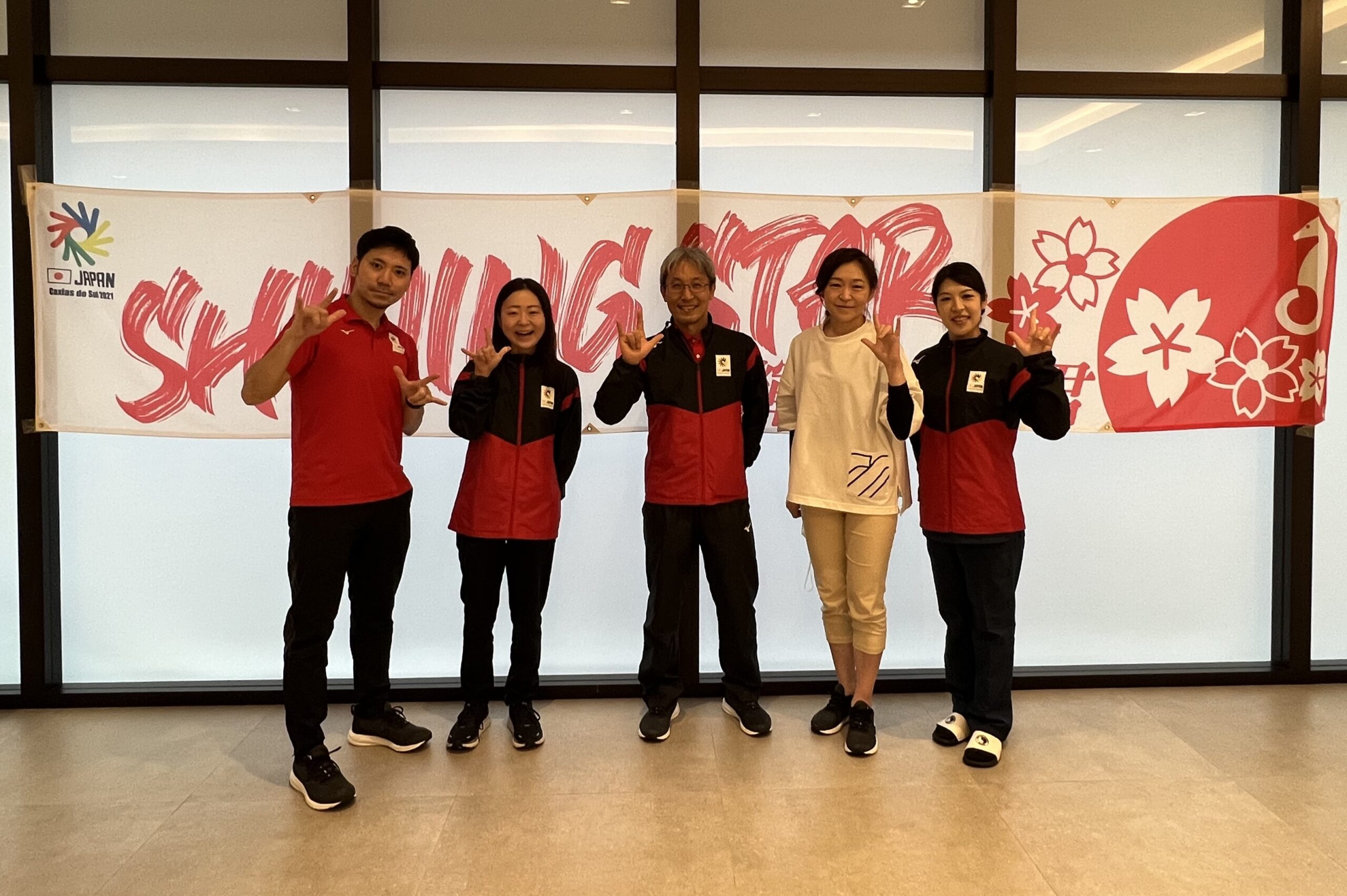
(Shiota-san is in the center)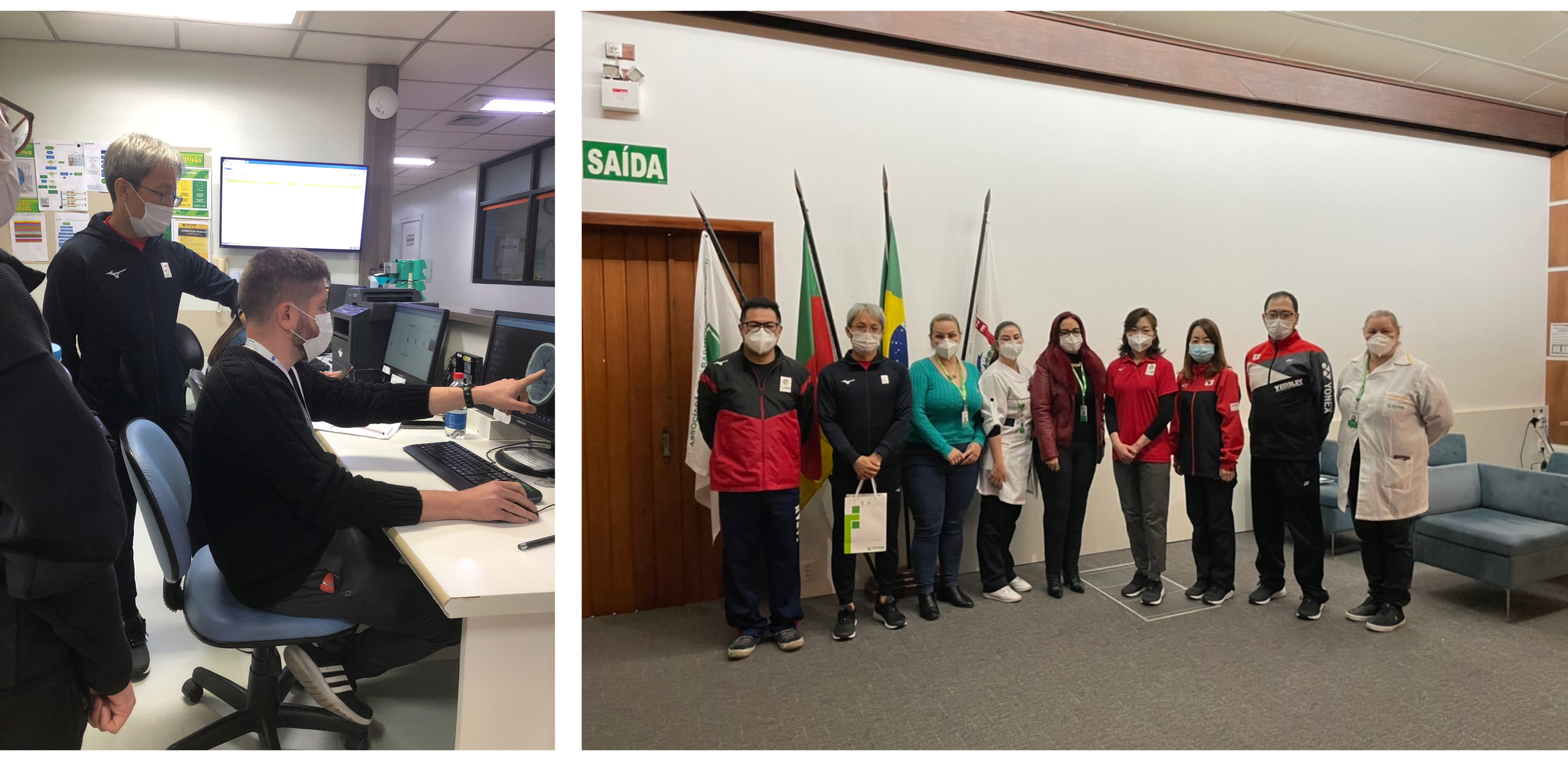
Left: Athletes are examined at a local hospital
Right: With local hospital staff
-What is the most important aspect of providing medical support?
Shiota-san I want to make sure that the players are in a state where they can give their best effort in the actual performance. I also want to support them by studying and improving my own knowledge so that I can give them the best treatment possible. I always approach the players with this in mind.
But sometimes it’s not always as easy as it seems. There are injuries and illnesses that cannot be cured, and there are many times when I am not sure what kind of treatment is best. I think about that all the time.
-How do you respond to players who are in a state of “no more” from a doctor’s point of view, but for whom the present moment is important?
Shiota-san In the end, it depends on the individual. Some athletes will do it even if we stop them, while others will not even if we say, “You can do it” (laughs). Athletes are very sensitive. One thing to be aware of is how to take into account the patient’s wishes. It is not only about treatment, but also about mental health.
-What are some of the most memorable episodes you have experienced in supporting many athletes?
Shiota-san There are times when we give athletes treatments that we would not normally give to people who come to the hospital. For example, “painkiller injections” are a good example. It does not heal the affected area, but only makes the pain less noticeable, which results in more pain. But only for special matches, the players are willing to give it their all without pain. Recently, however, the use of painkiller injections before a match is being banned.
-This is unique to the competition scene.
Shiota-san I am not sure if that is really a good thing. However, if I were in the same position, I would tell him to do so.
In fact, there was a player who broke his finger in the semi-finals of a tournament for the top team in Japan. He is a key player on the team, and it makes a big difference whether he is there or not. With the final awaiting him, he said, “I want to be there, I can be there.” He is absolutely necessary for the team to win, but if he goes out and further aggravates his injury, it could have a lasting impact on his future. As a medical professional, I was really unsure if I should give the go-ahead or not, and what I should do to get him ready to play. The way I communicated with the player could determine whether or not he would be able to participate, and even more so when it was a match that could determine whether or not they would become Japan’s No. 1 team. “Even if the game plan was changed, even if the player could only perform half as well as he could, just having that player on the team would make a difference,” I thought that and I said he can go. But as a result, the director decided not to send the player. The player was a little angry with me, saying why I didn’t tell him more strongly. I still cringe when I think that my one decision could have cost the life of a player.
The opposite is also true. A player told me, “I am tired and my body hurts, so I really want to take a day off. ” I hear that it is difficult for them to say so. They might not be able to use him after that. Both the player and the doctor are hired under the director’s policy, so depending on the value of the relationship, there is a possibility that they will be fired.
However, if you want to protect the players medically and genuinely, you sometimes have to say the opposite of what the director intends. Therefore, I have to build a relationship of trust with the director on a daily basis, and that is what I am most concerned about. As a team doctor, it is not enough just to have the ability to treat and diagnose.
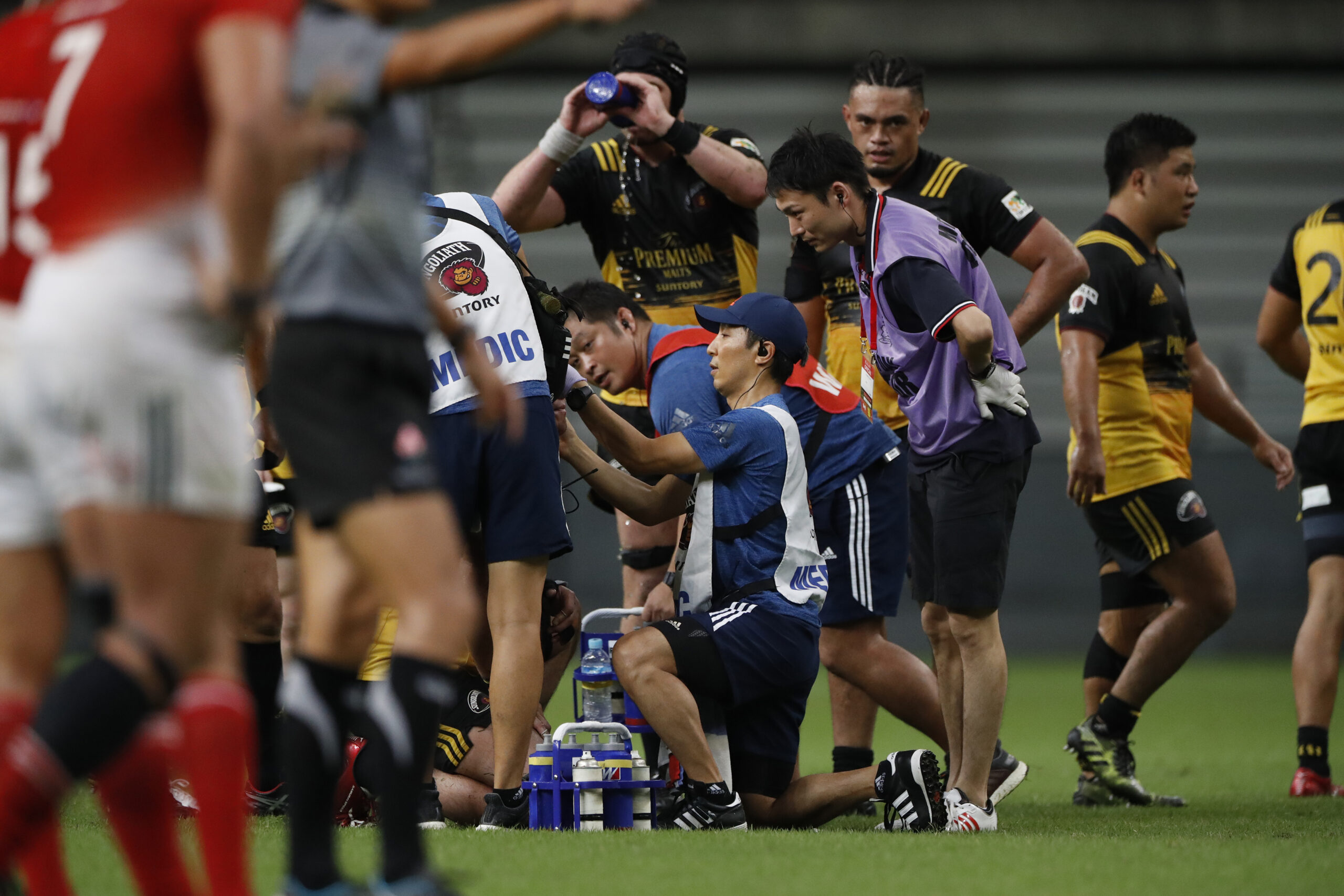
-You represent a joint project with the Tokyo Metropolitan Government that utilizes “SureTalk”*, a digital tool that enables two-way conversation using sign language and voice, don’t you?
Shiota-san I feel SureTalk has a lot of potential, but the most important thing is how to communicate with Deaf people. When I was asked to participate in the Caxias do Sul 2022 Deaflympics for the first time, I thought before, “If I can speak in writing, that’s all I need to do…” But it wasn’t that simple. I had a really hard time on the field, and I had underestimated some of the things I had to do.
*SureTalk: A service developed by Softbank Corporation and the University of Electro-Communications to facilitate communication between sign language users and voice users. Since sign language recognition requires a large amount of sign language video data, the features of each person’s sign language behavior are extracted, and this data is then quantified and learned by AI to enable recognition as a single sign language.
Official website: https://www.suretalk.mb.softbank.jp/
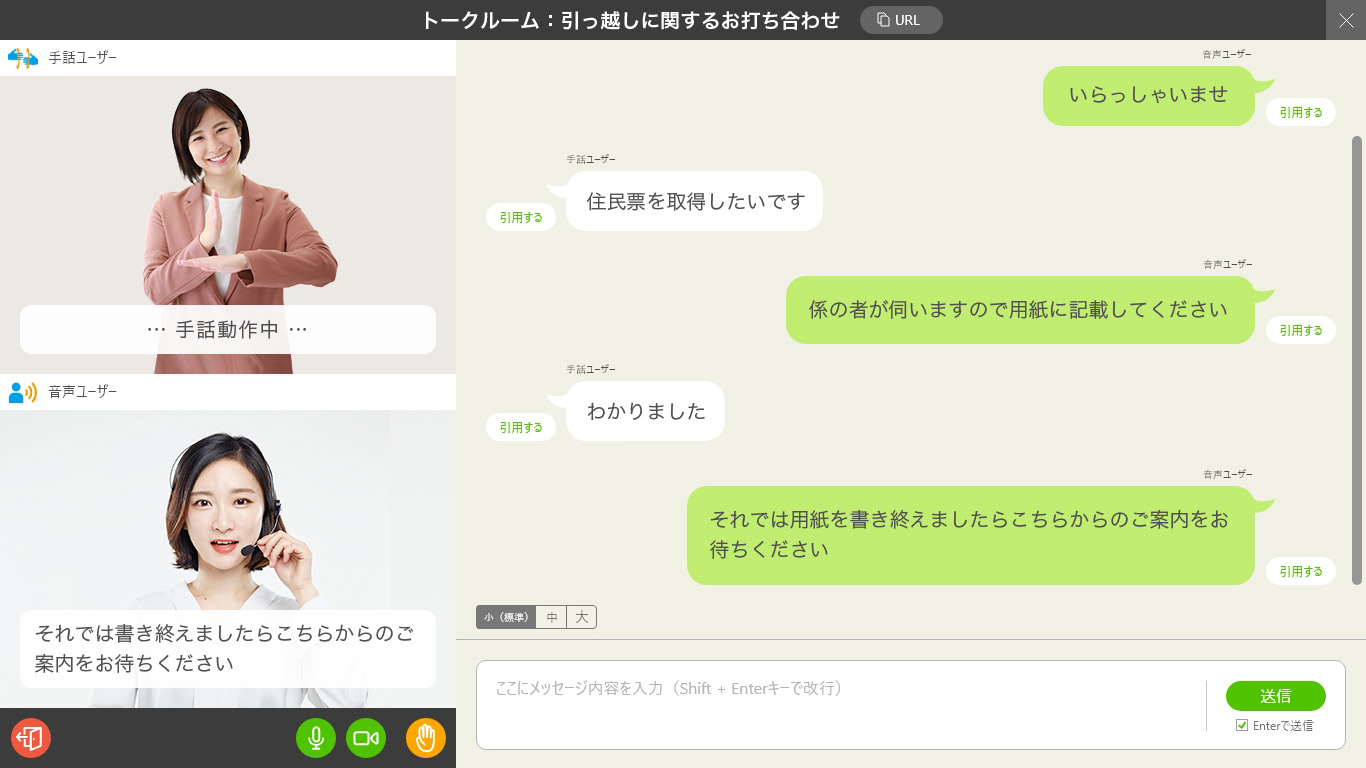
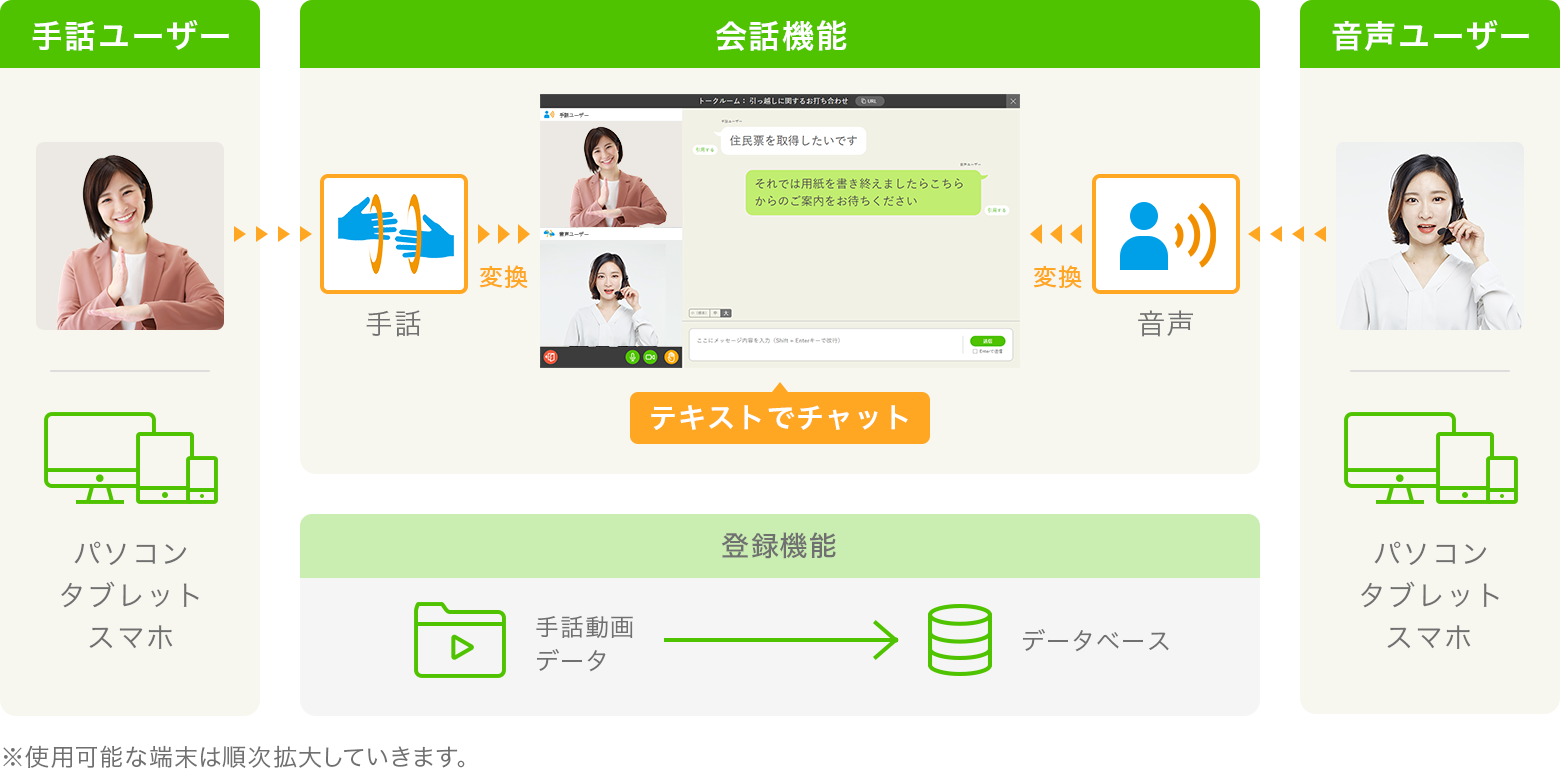
-In what ways have you had difficulty?
Shiota-san First, written communication is very confusing. The speed is totally different from that of voice conversation. Also, it is difficult to convey nuance. So, I realized that when we have a conversation, we are communicating with facial expressions and so on. Maybe that’s why, although unconsciously toward the Deaf players, I felt like I was with foreigners who could not speak Japanese. When I spoke to them, for some reason I spoke to them in English. I was surprised, too, “I spoke to them in English.”
-Did you notice a lack of understanding of the Deaf players?
Shiota-san That’s right. I always felt sorry for the players. There were times when my intentions were not fully conveyed, and there were also times when I repeated the same thing repeatedly. I was told by a player at the time that people with Deaf have a hard time seeing a doctor. When they communicate in writing during diagnosis, for example, some of the doctors get irritated and they know it. So, if they are just a little bit sick, they may be put off…. As for communication, there are some things you don’t realize until you have been in contact with a Deaf patient for a long time. I think it is sometimes difficult to make a proper diagnosis, including understanding their unique symptoms. So I kept thinking, “Can we make this university hospital more accessible for them?” even after I returned from the Deaflympics.
It was around this time that I became acquainted with Dr. Yuko Takeda*1. She is involved in research and efforts to create an environment where people can visit a hospital regardless of disability or language, and when I told her that I was involved with the Deaf athletic organization and athletes, she approached me. It’s better to have lots of friends than to work alone, isn’t it? Later today, we will hold another event*2 where people can try SureTalk and interact with Deaf Athletes. We are actually planning to increase the participation of other doctors through these events.
*1 Yuko Takeda: Professor, Juntendo University Faculty of Medicine, Medical Education Laboratory. She is involved in activities to introduce and promote medical communication using “easy Japanese”. Representative of the Medical x “Easy Japanese” Study Group.
*2 “Let’s Talk with Deaf Athletes: AI Sign Language Translation Tool Trial Session”: As part of the “Tokyo Metropolitan Government and Universities Joint Project” to support university initiatives that contribute to the sustainable development of Tokyo and the promotion of the SDGs, Juntendo University and the University of Electro-Communications will collaborate in FY2023 to realize a borderless Tokyo where anyone can enjoy sports on the occasion of the Tokyo 2025 Deaflympics. The project will be held six times until March 2024.
Juntendo University Sports Medicine Laboratory website:https://sportsmed.juntendo.ac.jp/projects/topics/1148/
I honestly believe that learning sign language from scratch is very difficult. I am sorry to say that it is not realistic to expect everyone to learn it all. However, I believe it is “technology” that will change the world. I was hoping to use some useful technology there, and then I learned about SureTalk. I applied for a joint project with the Tokyo Metropolitan Government to develop this technology.
I really want to put SureTalk in hospitals right away, but the technology is still in its infancy. Right now, we are in the process of having the AI learn various signs. So we will continue to evolve by having everyone try it out, and I think the only way to do that is to work steadily by giving people many opportunities to try it out at hands-on events.
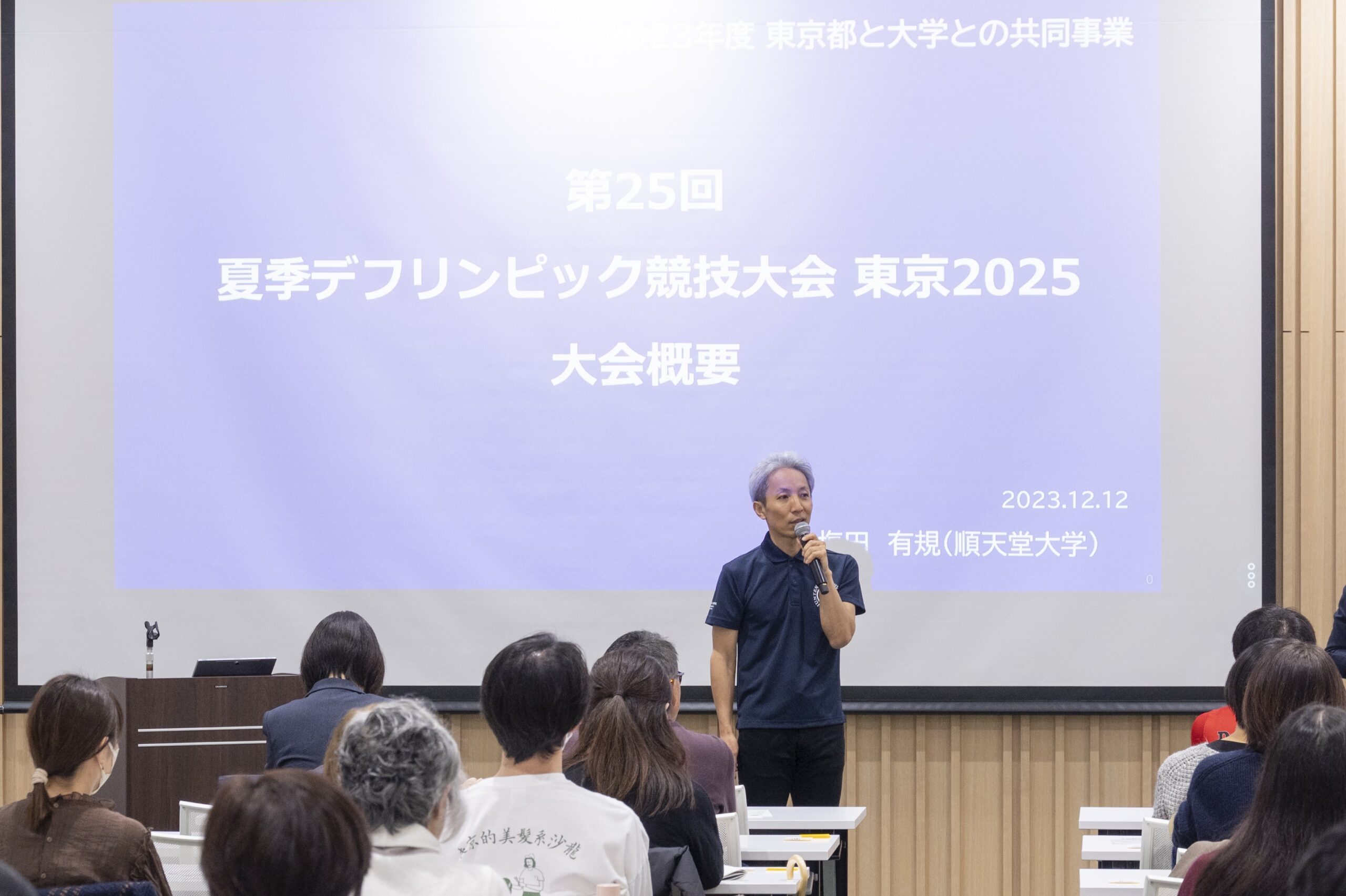
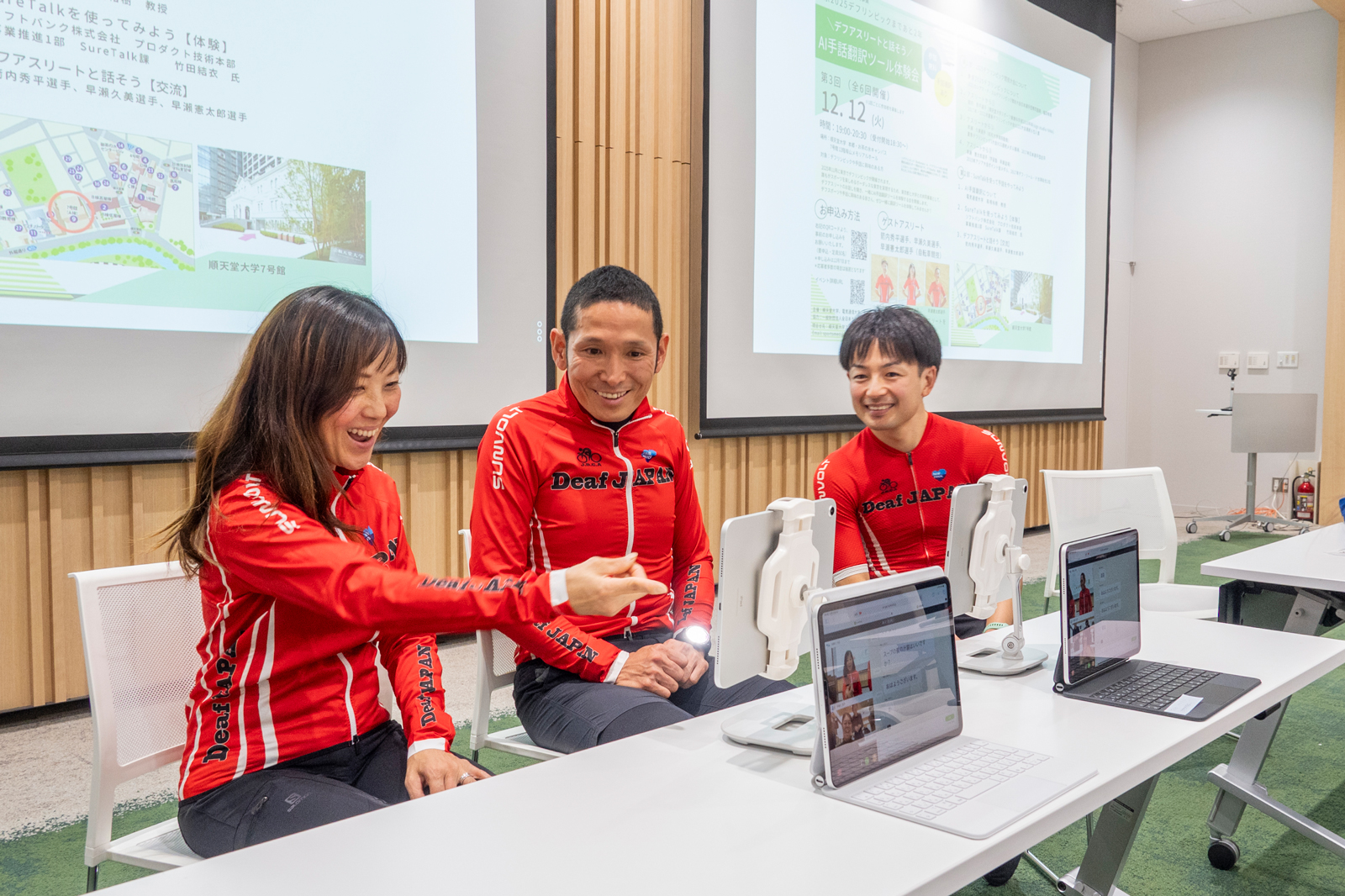
From left to right: Kumi Hayase, Kentaro Hayase, and Shuhei Yanai, all of whom have competed in the Deaflympics on Deaf bicycles.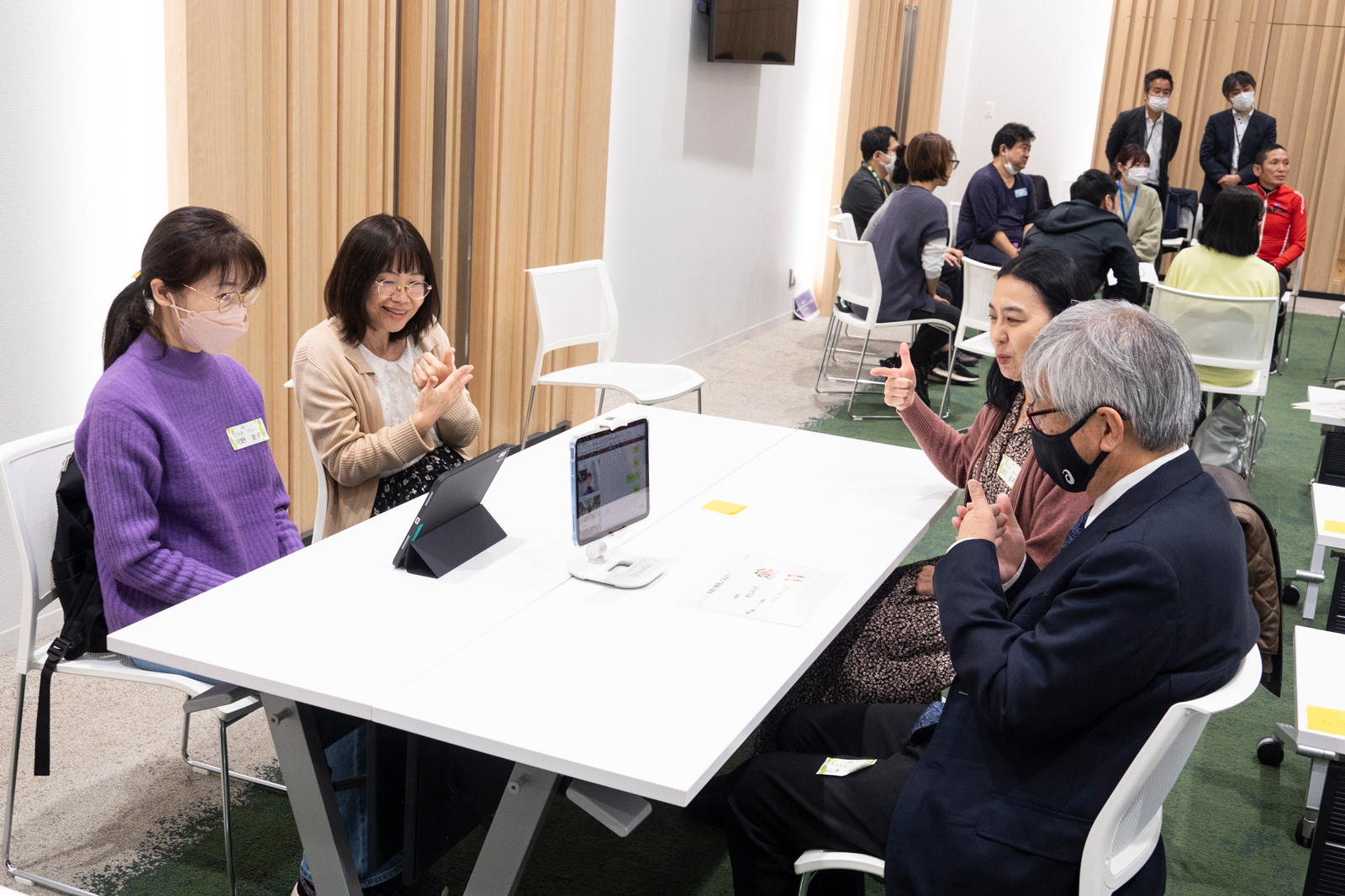
-Have you changed your way of thinking and living as a doctor since you started working with Deaf Athletes?
Shiota-san I think “not knowing” leads to many misunderstandings. We make assumptions on our own. I felt that people become quite negative about things they don’t know. When I was exposed to unfamiliar news or new initiatives, I realized that I had been thinking negatively about them.
So when I was asked about something I didn’t know or experienced, I thought, “Let’s not deny it out of the blue, but take it positively first.” I learned that kind of mindset change and way of thinking.
-What kind of society and world do you want to see in 2025, when the Deaflympics will be held in Tokyo for the first time, and in the future beyond that?
Shiota-san I once studied in Paris, which will host the Olympic and Paralympic Games in 2024. The city is much older and more inconvenient than Tokyo, with no escalators or elevators. Even buses do not have wheelchair seats like in Japan. But when there was a person in a wheelchair, everyone there helped him or her. They don’t all know each other. But that is normal. Also, if you have a small child with you, 100% of them will give up their seat. For example, if a young person is listening to music and he doesn’t notice (or is he pretending not to notice?), people around him will say, “You should give them your seat.”
It would be nice if such things could be done “naturally” in our society and environment. Even though I say that, it still takes a lot of courage even for me. Technology such as SureTalk may be what encourages that “courage,” and I would like to create an opportunity for many people to “know” as we move toward 2025, even if only a little.
-What are some of the challenges and visions for the future that you feel now?
Shiota-san First of all, I would like to change this hospital so that people who are in the deaf can see a doctor without hesitation, and I would also like to raise the momentum of the hospital itself through joint projects with the Tokyo Metropolitan Government. As a doctor, my challenge is how to get “people who don’t know or are not interested” to cooperate. I am wondering how I can get the cooperation of the doctors in the other departments. I don’t think it should be a top-down approach. Ideally, I would like everyone to think it is “fun” and work together to make it happen, and then come and watch and support the athletes with disabilities.
However, in a sense, sports are tough, and if it is not fun, people will not come to watch. Forcing people to say, “He’s disabled, so let’s all support him,” won’t work. As was the case with me, change your mindset to support them.
It is closer than just watching TV. That is why I thought it would be good to create opportunities to interact with the athletes at such workshops, and to have the experience of “being able to speak a little in sign language.”
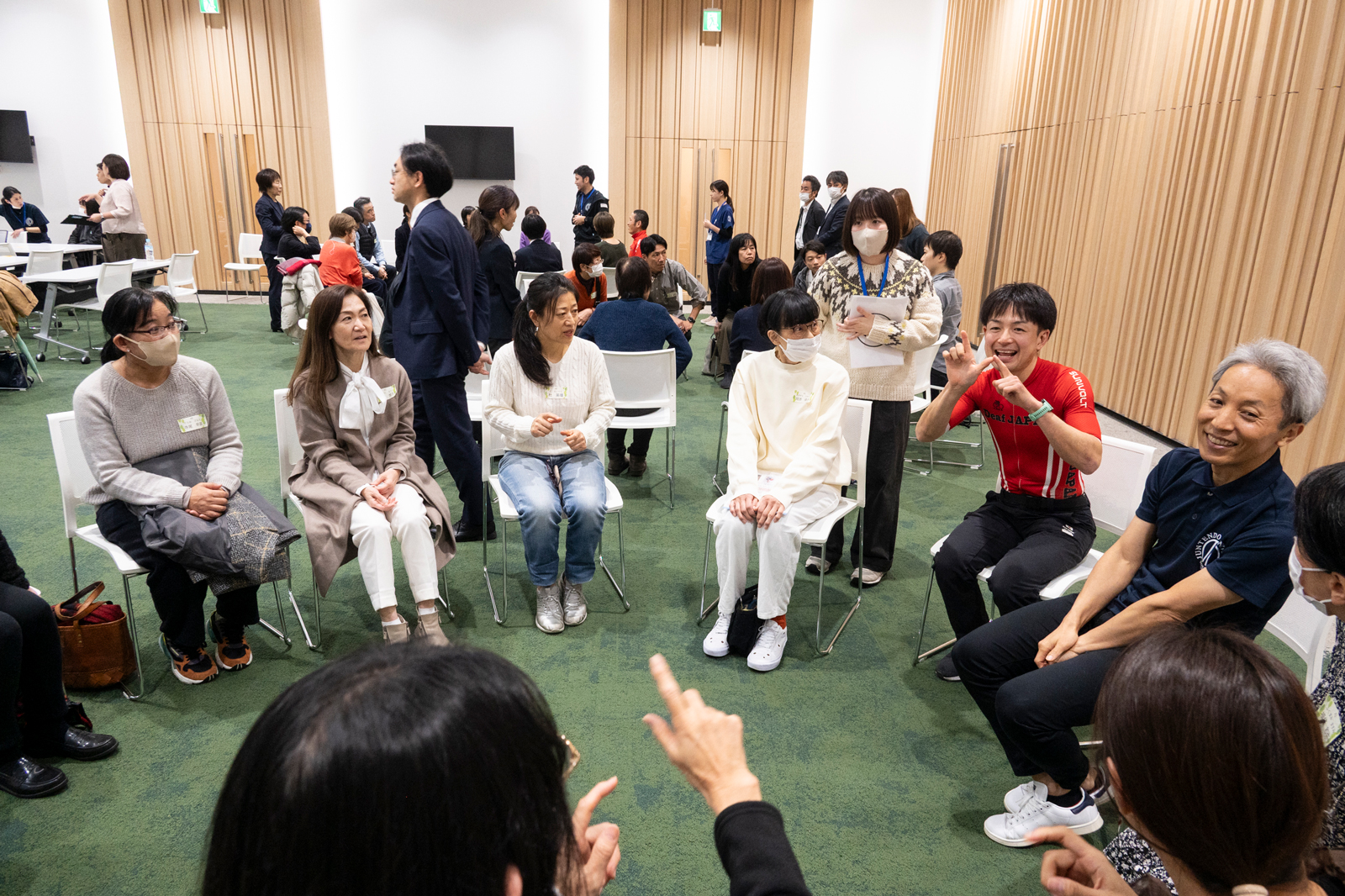
-To the Tokyo 2025 Deaflympics, a message to our readers.
Shiota-san Japanese Deaf Athletes are very strong and have won many medals in past competitions. I think there are many athletes whom I would like to support by “getting to know” them.
For the athletes, the happiest thing is to perform in front of a big audience. When the Deaflympics are held in Tokyo, I hope that many people will come to the venue to watch and cheer for the athletes. To this end, I would like to continue to do my best to create opportunities to “know” and I would like everyone to try to face what they “don’t know”!
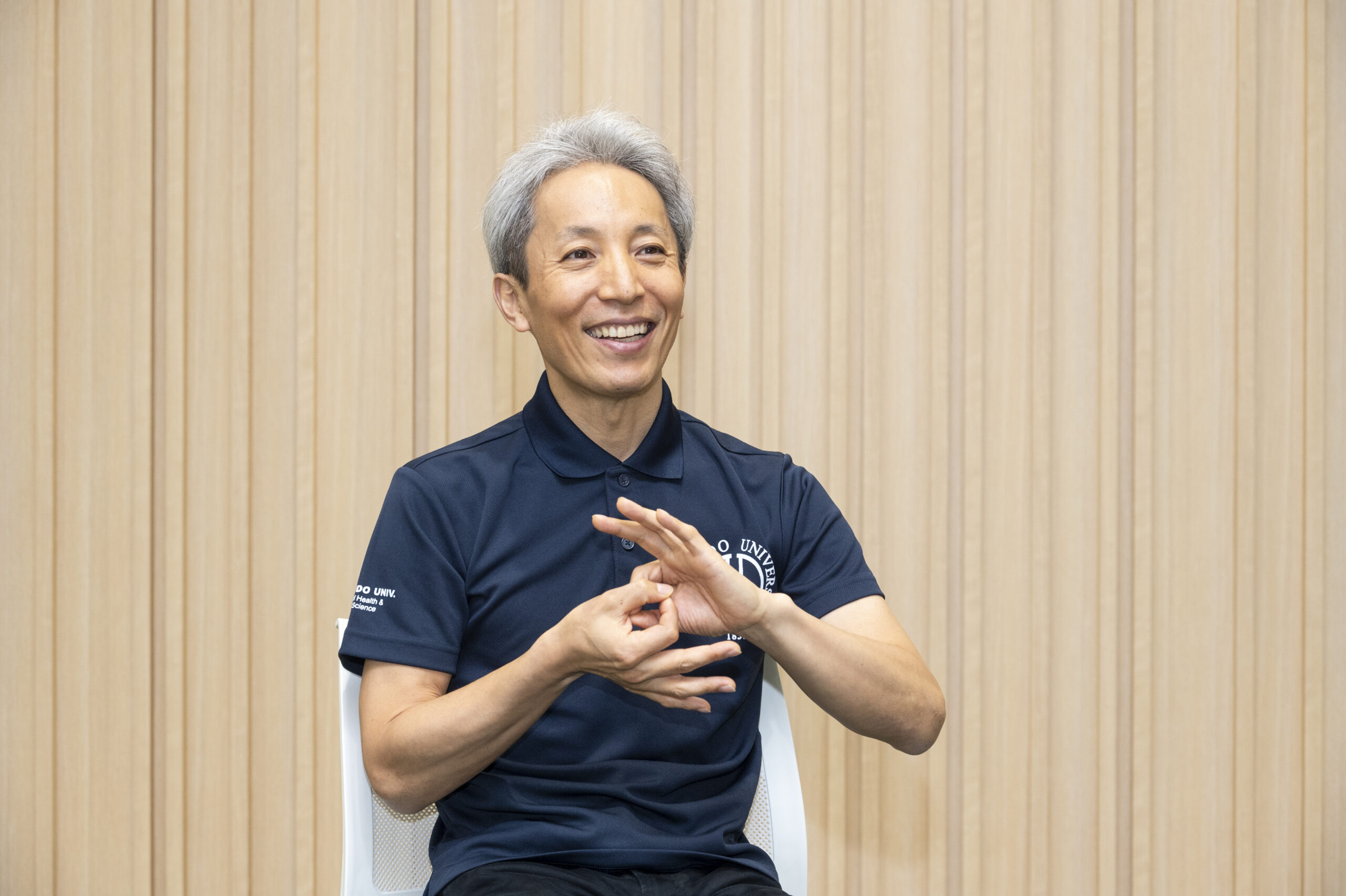
Yuki Shiota / Born in Chiba
Associate Professor, Juntendo University, Faculty of Health and Sports Science
Shiota-san played baseball in elementary school, basketball in junior high school, and rugby in high school and college. In high school, one of his seniors participated in the national tournament in Hanazono. In his generation, he finished in the top 8 in the prefecture. His favorite subject has been physical education since elementary school. An injury sustained in high school led him to pursue a career in medicine.
After graduating from university, he joined the Department of Orthopedic Surgery at Juntendo University and became a sports doctor. While working with athletes as a team doctor for the Tokyo Suntory Sungoliath rugby team, he also served as a venue doctor for the Tokyo 2020 Olympic and Paralympic Games, the Caxias do Sul 2022 Deaflympics, and the 2023 Special Olympics Summer World Games in Berlin and Hangzhou. He is also actively involved in sports for the disabled, including participation in the Special Olympics Summer World Games in Berlin 2023 and the Asian Para Games in Hangzhou 2022.
His hobby is marathons.
2025.02.28
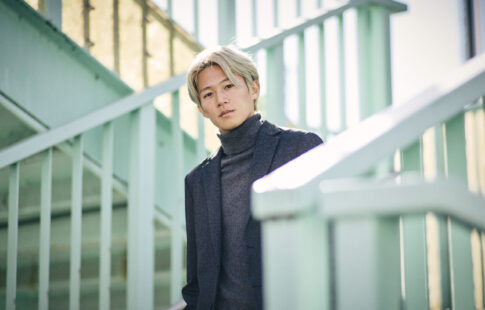
An influencer who is now widely accepted by the general public, Takaya Mitsuka. The dream stage that he arrive […]
2025.02.28
An influencer who is now widely accepted by the general public, Takaya Mitsuka. The dream stage that he arrive […]
2025.01.20
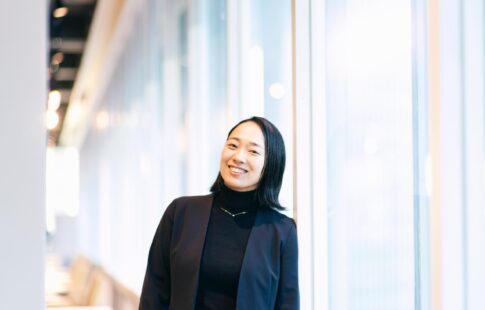
In 2023, Ikumi Kawamata was appointed as a Tokyo 2025 Deaflympics Ambassador. She has been in charge of projec […]
2025.01.20
In 2023, Ikumi Kawamata was appointed as a Tokyo 2025 Deaflympics Ambassador. She has been in charge of projec […]